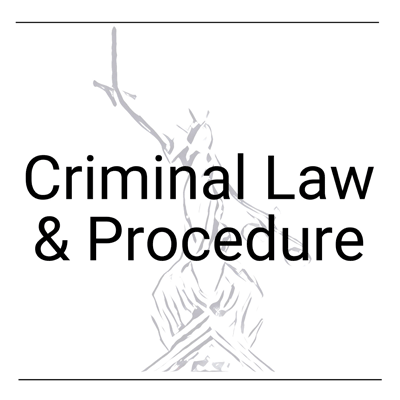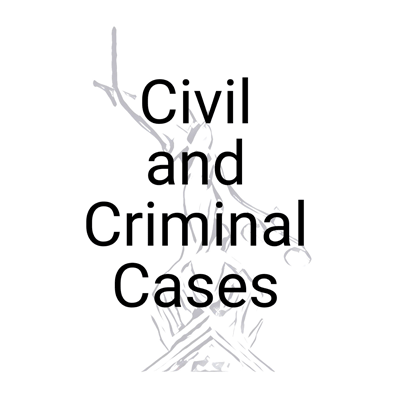Criminal Law
Understanding Criminal Cases, Offences & Court Procedure
All Contents > Criminal Law > Magistrates’ Court Trial > Crown Court Trial > How Sentencing Works
“All criminal offences have a potential maximum penalty available, from a fine for the least serious to life imprisonment for the most serious. A person cannot be sentenced for a criminal offence unless convicted, either by pleading guilty of being convicted after trial in the magistrates’ court or Crown Court (where the guilt of the defendant must be established beyond reasonable doubt).”
On this page …
What is a criminal case?
What is the difference between a criminal case and a civil case?
How is a criminal case started?
What courts are criminal cases heard in?
Who can bring a criminal case?
What do the prosecution have to prove in a criminal case? The burden and standard of proof
Understanding criminal offences
What rules govern procedure in the criminal courts?
Researching the criminal law - What text books do criminal lawyers use?
Please subscribe to access all specialist content.
What is a criminal case?
A criminal case is simply one where a person or a company, (‘the defendant’ or ‘the accused’) is alleged to have committed a criminal offence (‘the charge’, ‘the crime’ or ‘the offence’).
Penalty
All criminal offences have a potential maximum penalty available, from a fine for the least serious to life imprisonment for the most serious. A person cannot be sentenced for a criminal offence unless convicted, either by pleading guilty of being convicted after trial in the magistrates’ court or Crown Court (where the guilt of the defendant must be established beyond reasonable doubt).
Purpose
The purpose of the criminal law (and the creation of criminal offences) is to regulate standards of conduct between individuals and organisations in society, which are considered of sufficient magnitude as to require the intervention of the criminal law.
Creation
Criminal offences are usually created by Acts of Parliament (also known as statutes or legislation). For example, the offence of theft is contained in section 1 of the Theft Act 1968 and the offence of Assault Occasioning Actual Bodily Harm (ABH) is created by section 47 of the Offences Against the Person Act 1861.
Not all criminal offences are created by statute - a very small proportion have come into existence and been developed and refined by judges over a long period of time through what is known as the common law.
Common law offences include murder, manslaughter, perverting the course of justice, kidnapping, false imprisonment and cheating the public revenue.
Interpretation
When a statute (such as the Theft Act 1968) is created, judges are often required to interpret precisely what the law means.
When senior judges in the higher courts (the High Court, the Court of Appeal or the Supreme Court) give a judgment on the meaning of the law, this becomes a precedent which lower courts (the magistrates’ court and the Crown Court) must follow.
An example of this can be seen below in Understanding Criminal Offences.

















